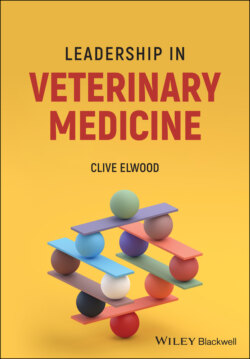Читать книгу Leadership in Veterinary Medicine - Clive Elwood - Страница 61
3.3.4 Compassion
ОглавлениеCompassion is the feeling that arises when you are confronted with another's suffering and feel motivated to relieve that suffering (Hess‐Holden et al. 2019). It is related to, but not the same as, empathy. Veterinary medicine is, by definition, a compassionate profession and full of those who are motivated by compassion for their fellow creatures. A desire to relieve suffering is a powerful motivator and drives great good. For leadership, a compassionate mission is easy to promote and align with, perhaps more when compassion is aimed at the animals under our care than ourselves and our colleagues. Compassion for people can be lost when the needs of our animal charges are manifest but those in leadership must ensure that there is compassion for, and care of, their people too.
Too much compassion can be overwhelming and, when compassion for others is sustained and not balanced by compassion for ourselves and support from others (including leadership), it can be draining and lead to compassion fatigue. This is a state of profound physical and emotional exhaustion and a marked reduction in our ability to empathise. It has been characterised as a secondary traumatic stress and is a serious risk in caregivers, particularly at times of high demand (Cohen 2007).
‘I just don't care!’ are hardly the words you would want to hear from a leader. There are plenty of examples of leadership that is not compassionate, and outcomes are rarely encouraging. At best, followers may feel unappreciated, uncared for, disposable. At worst, they may be physically and emotionally damage, depersonalised, and capable of imposing great harm on others.
